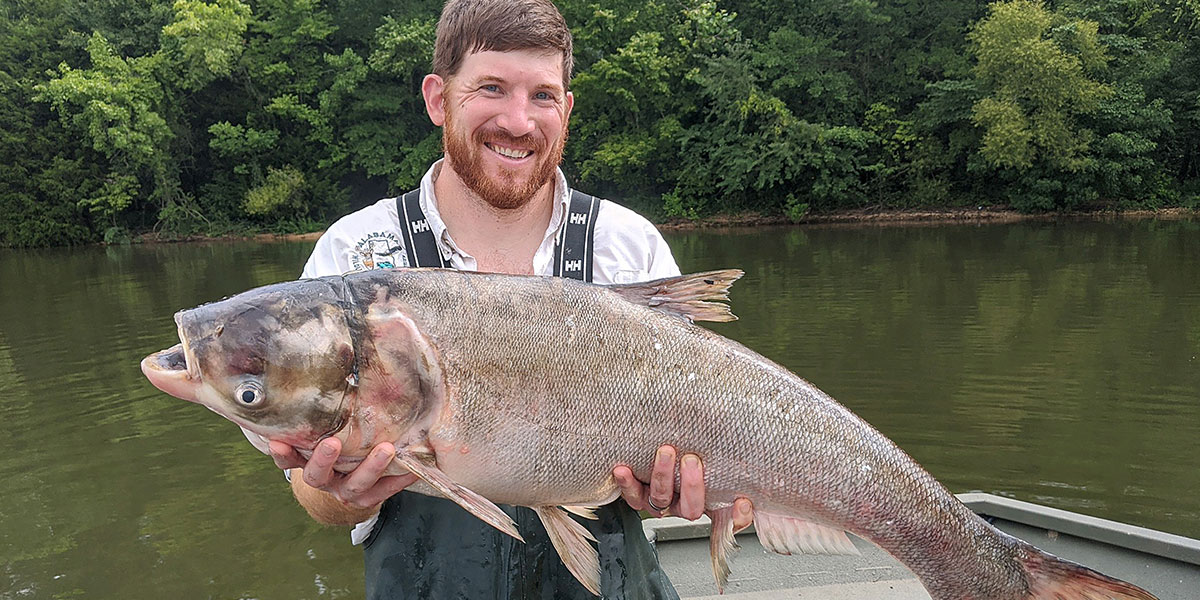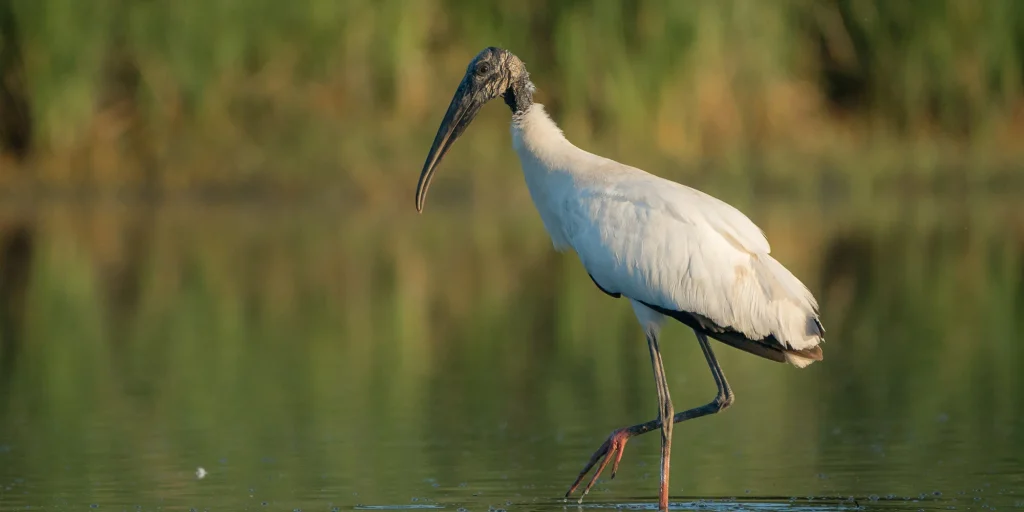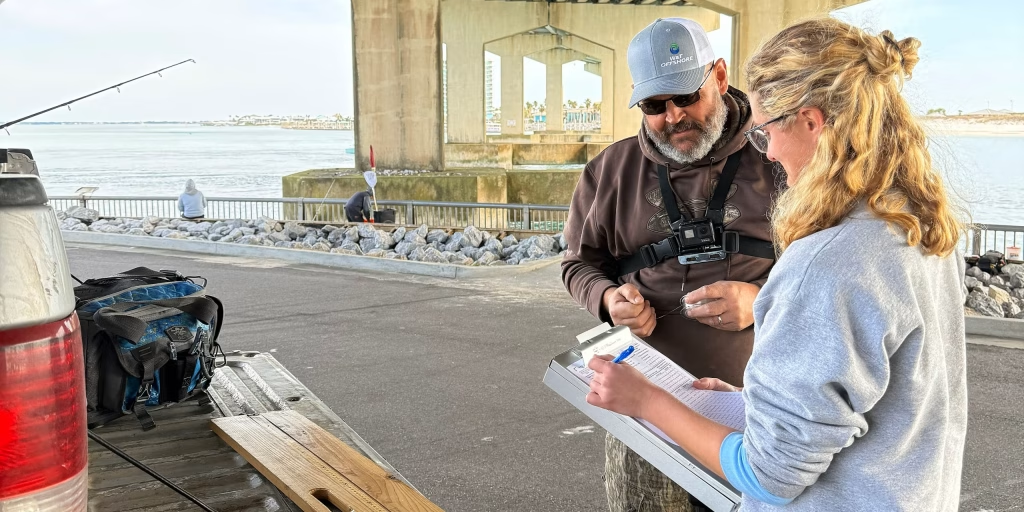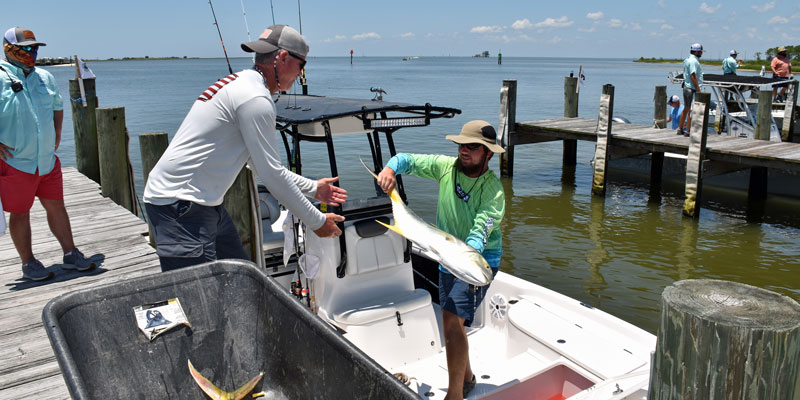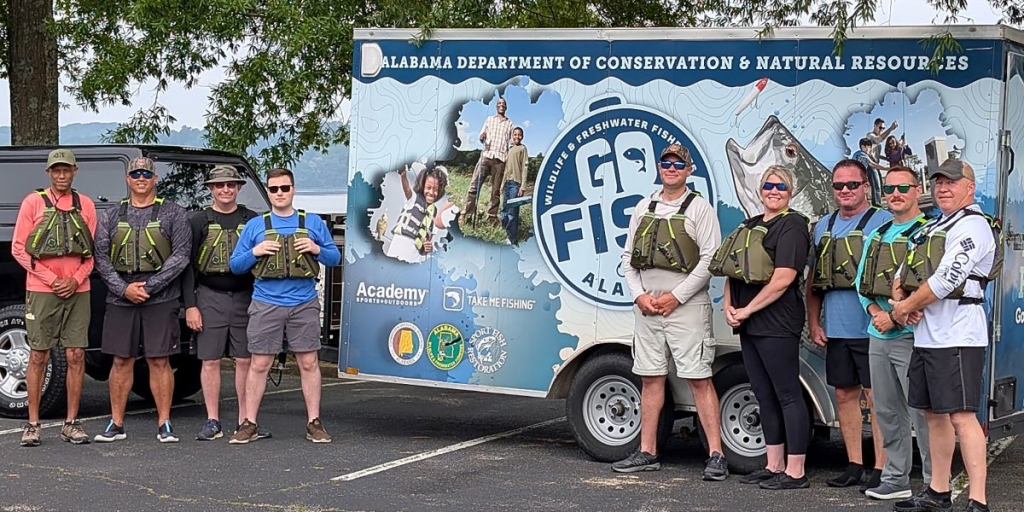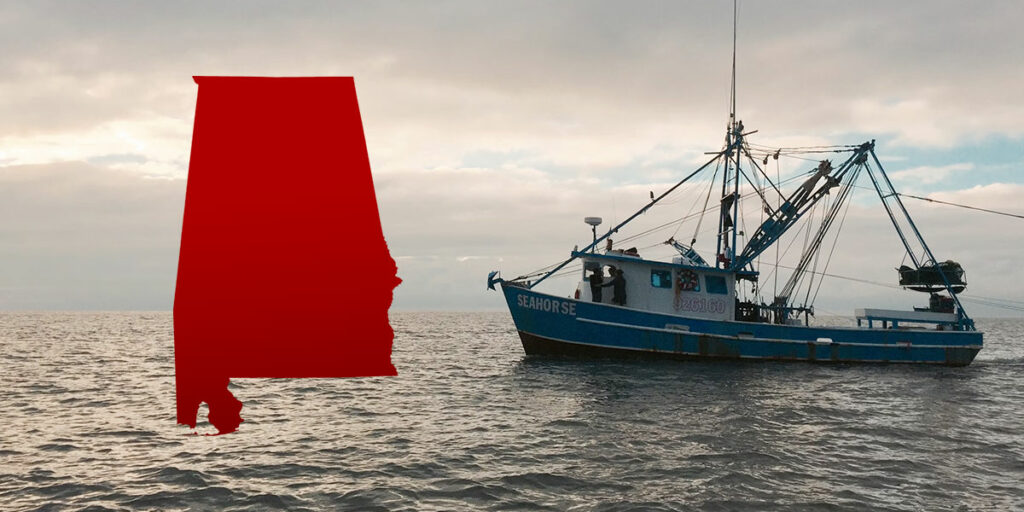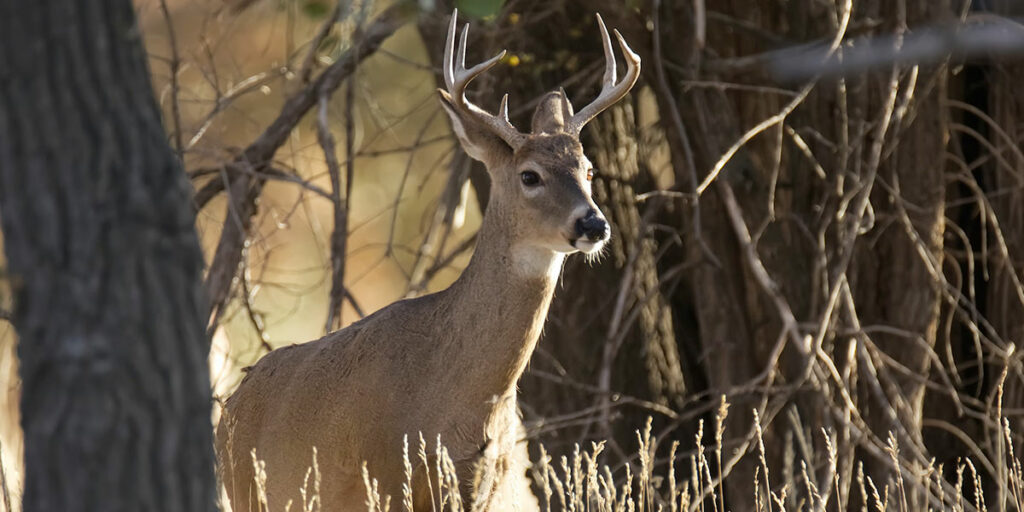The Alabama Department of Conservation and Natural Resources is expanding its awareness campaign about two species of invasive carp that pose a potential threat to the state’s native freshwater fish and habitats – bighead and silver carp.
The Fisheries Section of the department’s Wildlife and Freshwater Fisheries Division is posting signs this fall at public boat ramps along the Tennessee River in north Alabama to help boaters and anglers identify bighead and silver carp if seen or harvested.
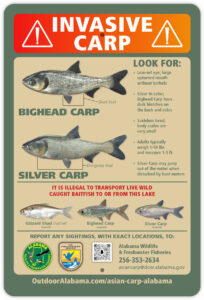
“Due to the threat posed by invasive carp, we are working to protect the state’s aquatic resources from these invaders,” said Chris Greene, chief of WFF’s Fisheries Section. “Currently, the areas of concern for silver carp in Alabama are the Tennessee and Tombigbee rivers. When established, these fish not only negatively impact native fishes they can also harm boaters by jumping out of the water when startled by the vibrations and noises produced by boat motors. A jumping carp strike can cause serious injury to anyone on board a vessel.”
Similar to the threat posed by feral pigs on land, invasive carp outcompete with other native species for food and habitat including the state’s important game fish. As their range expands, the potential to wreak havoc on lakes, rivers and local economies in Alabama increases.
The well-documented competition with native fishes in other states is a primary concern for freshwater fisheries managers in Alabama.
There are four species of invasive carp that have been introduced in the U.S. – bighead, silver, grass and black carp. These fish have long been an issue in parts of the Midwest. Bighead, silver and grass carp are known to exist in Alabama waters. Silver and black carp are the greatest immediate threat to Alabama due to the state’s abundant aquatic resources and habitat. To date, black carp have not been documented in the state.
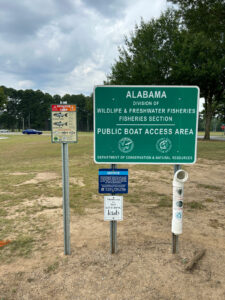
Alabama has partnered with neighboring state and federal natural resource agencies to address invasive carp management. These partnerships and the active monitoring of invasive carp populations in Alabama by WFF Fisheries Section staff are critical in containing the threat posed by these species. However, WFF fisheries biologists need assistance from the public with monitoring for invasive carp.
Boaters and anglers are encouraged to report sightings and/or harvests of bighead and silver carp to WFF’s Fisheries Section by phone at 256-353-2634 or by email at [email protected]. When reporting a sighting or harvest, provide the following information: the location (GPS coordinates, if possible), the date and clear photos of the fish. If reporting the harvest of an invasive carp, it is very important that you do not release it back into the water.
For more information about invasive carp in Alabama, visit www.outdooralabama.com/asian-




